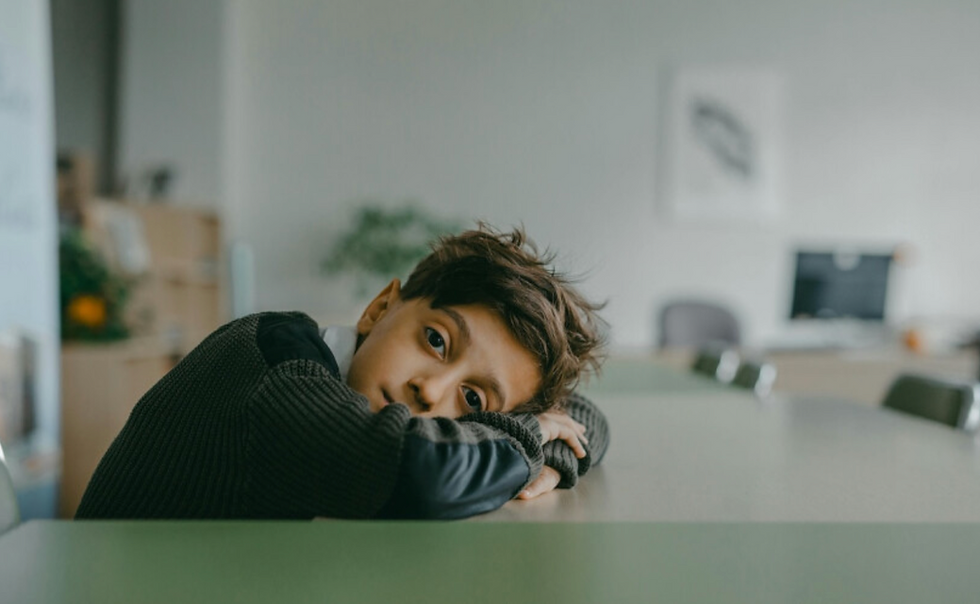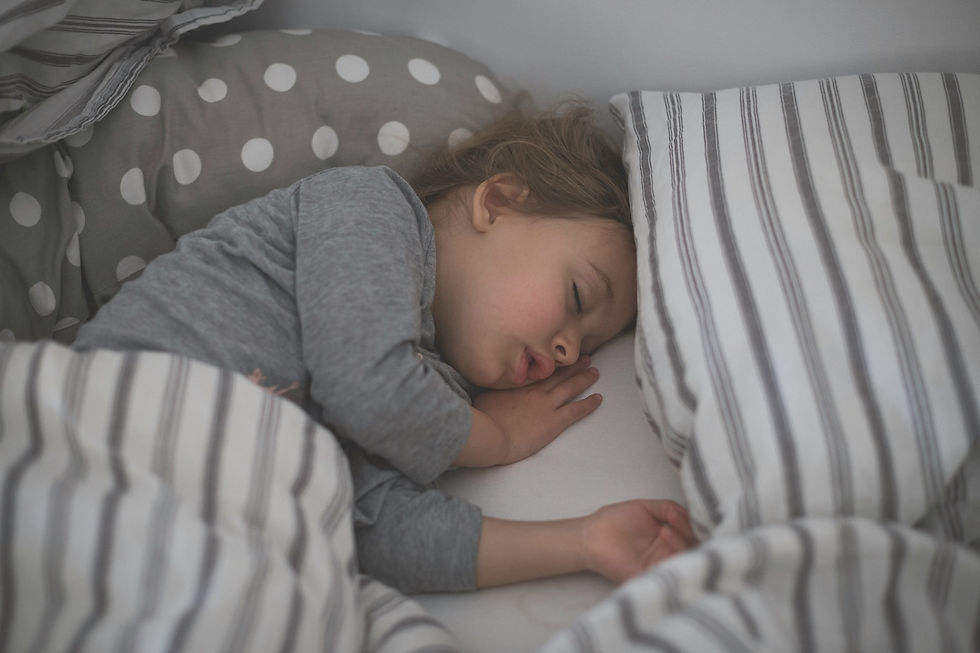Why are children experiencing stress and anxiety more these days?
- Angela Cain | Hypnotherapist

- Jun 7, 2024
- 4 min read
In recent years, there has been a remarkable escalation in anxiety and stress among children in the UK.

This rise can be based on various factors, ranging from social dynamics to environmental concerns, technological advancements, and family structures. Understanding these underlying root causes is imperative for addressing the mental health needs of children and young adults and exploring effective interventions like hypnotherapy.
Fundamental social factors contributing to anxiety
Several social factors significantly contribute to the development of anxiety in children:
Peer exclusion and bullying
Social interactions and acceptance are vital during childhood and adolescence. Exclusion or bullying can severely impact a child's self-esteem and mental well-being, leading to anxiety and depression. This is now even more common via social media.
Parental issues
Domestic violence, drug and alcohol misuse, and family breakdowns create an unstable environment for children. Witnessing or experiencing these issues can result in chronic stress and anxiety.
Bereavement and family breakdown
The loss of a loved one or parental separation can be traumatic for children. Such experiences often lead to feelings of insecurity and anxiety as they cope with significant changes in their lives.
School-related stress
Academic pressures, teacher-student relationships, and the noise and chaos of school environments can overwhelm children, contributing to stress and anxiety.
Environmental and technological influences
Modern environmental and technological factors also play a significant role:
Climate change and eco-anxiety
Growing awareness of climate change and its potential impact has given rise to a new form of anxiety known as eco-anxiety. Children and adolescents, who are more sensitive to global issues, often feel overwhelmed by the grim predictions about the future.
Social media and smartphones
Social media has dramatically changed the way that young people interact and perceive themselves. Social comparison, cyberbullying, and exposure to harmful content on these platforms can negatively impact their mental health. The constant need for validation and fear of missing out (FOMO) intensify anxiety and stress.
The role of trauma and learned behaviours
Children's mental health is also shaped by their immediate environments and experiences:
Trauma
Trauma is personal and what one person interprets as trauma will be different to another. That said if children have experienced or witnessed violence, abuse, or serious illness it can trigger anxiety. Such traumatic events leave lasting impressions and can disrupt a child's sense of safety and normalcy.
Learned behaviours
Children often mimic the emotional responses of adults around them. Growing up in a household where anxiety and fear are prevalent can teach a child to adopt similar reactions, perpetuating a cycle of anxiety that embeds a habit pattern of emotions and reactions to situations.
Societal trends and their impact
Societal shifts also contribute to the growing anxiety epidemic among children:
Avoidance of uncomfortable situations
Modern society increasingly avoids confronting uncomfortable situations, leading to a generation less prepared to handle real-world challenges. This avoidance can leave children ill-equipped to manage stress and anxiety effectively.
Increased pressure and expectations
The competitive nature of modern education and societal expectations can overwhelm children, leading to increased stress and anxiety.
How hypnotherapy can help
I have seen an increase in children seeking my help using hypnotherapy as an emerging valuable tool in helping them regulate, manage, and overcome anxiety.
It works by inducing a state of deep relaxation and heightened awareness, allowing children to confront their fears and develop healthier coping mechanisms in a safe environment. If habit patterns have been formed then together we can reframe these habit patterns into more positive ones.
The process of hypnotherapy
Creating a relaxed state
My clients often refer to my treatment as a ‘spa experience’. Whilst they relax in a comfy relaxing chair, listening to soft pleasant music wearing an eye mask if wanted.
Hypnotherapy helps children achieve a state of relaxation where they can focus intensely on their thoughts and imagination. This relaxed state is conducive to exploring and reframing anxious thoughts.
Engaging imagination and internal resources
By using their imagination, children can visualise positive outcomes and develop new ways of responding to stressors. This process builds confidence and equips them with tools to manage anxiety more effectively.
Reframing thought patterns
Hypnotherapy guides children in reframing negative thought patterns. They learn to approach their fears with a new perspective, reducing the intensity of their anxiety.
Practical techniques
One simple technique that can be introduced is the 3-3-3 rule, a mindfulness exercise that helps ground children in the present moment. This technique involves naming three things they can see, identifying three sounds they can hear, and moving three different parts of their body.
Such exercises can be incorporated into hypnotherapy sessions to help children manage anxiety in real-time.
Applications and benefits
Hypnotherapy for children can be used to address a wide range of issues beyond anxiety, including:
Behavioural issues: Hypnotherapy can help with bedwetting (enuresis) and other behavioural problems such as anger or lack of confidence by addressing underlying anxiety and emotional stress.
Family and school issues: Children dealing with parental divorce, separation, or school-related stress can benefit from hypnotherapy's calming and confidence-building effects.
Attention disorders: Hypnotherapy has been found effective for children with ADHD, helping them focus and manage their symptoms more effectively.
The rising levels of anxiety and stress among children in the UK are a multifaceted issue, influenced by social, environmental, and technological factors. Hypnotherapy offers a promising intervention, helping children develop the resilience and coping skills needed to navigate these challenges.
By creating a safe space for relaxation and imaginative exploration, hypnotherapy can significantly improve children's mental well-being and equip them with tools to face their fears confidently.




Comments